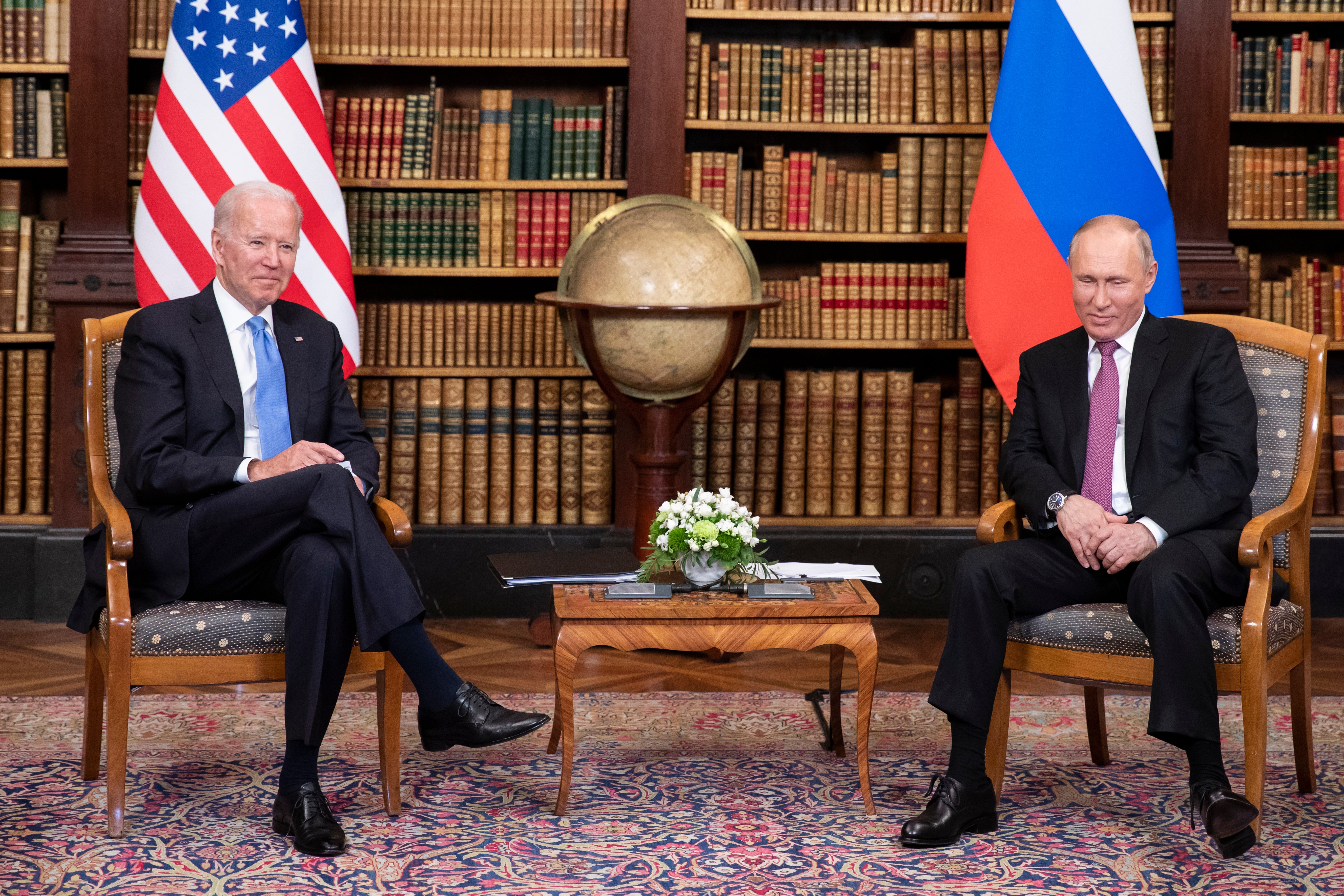Those who believed US-Russian tensions had been put to rest have had a rough awakening
Vladimir Putin’s piece this week, timed to coincide with the 80th anniversary of the Nazi invasion of the Soviet Union, starts gently enough, writes Oliver Carroll


Those who believed US-Russian tensions had been put to rest when Biden and Putin last week agreed on, well, not very much, were given a rough awakening this week with a long-trailed article in Die Zeit on the Second World War. And the incident in the Black Sea over the UK warship HMS Defender will not have helped matters.
Vladimir Putin’s piece, timed to coincide with the 80th anniversary of the Nazi invasion of the Soviet Union, starts gently enough.
The Soviets suffered huge losses, he notes, but fought back to arrive in Berlin with “noble intentions”. This set the stage for cooperation. After the end of the Cold War, a new pact “from Lisbon to Vladivostok” seemed within reach.
But the Russian president then turns his attention to Ukraine, and the 2014 revolution. Anger takes over.
The United States – the same US with which he has just pledged to build newly cooperative relations – organised an “armed coup”, he says. What’s more, Europe supported it. “Why did this have to happen?” he writes. “Yanukovych had already agreed to all the opposition demands.”
Discussion of the facts aside, it seems curious that an article devoted to 1941 – and written largely in the language of conciliation – should dwell so emotionally on a peripheral matter.
If you looked closely, there were similar moments on display at the Geneva summit as well.
Anyone could be forgiven for losing one’s cool that day. At 34 degrees, we all wilted in the heat, and we didn’t have to take part in three-and-a-half hours of talks. But what was remarkable during the post-summit press conference was the pattern of Putin’s irritation.
On matters of strategic stability, international relations or personal relations with Joe Biden, the Russian leader was the confident, consistent adult in the room.
Wasn’t it a good thing that the world’s two nuclear powers were talking, he argued. Few of us would disagree.
But when a question itched – if Putin was asked about Alexei Navalny, “the citizen” who could not be named, or Ukraine, or anyone from a list of opponents poisoned or killed – answers became obviously cross and erratic.
In one particularly memorable passage, the Russian leader asked why he had been called a killer while black men were being killed in the United States. Regardless of your views on weird whataboutism, it wasn’t a strong look.
It also doesn’t appear consistent with the widely accepted characterisation of Putin as a “cold-blooded” genius. If it was ever true, the tag does seem outdated in the Russia of 2021.
The Kremlin, of course, denies its involvement in violence against its critics, but the evidence connecting its agents to poisoning attempts is convincing.
As shocking is the wider and wider circle of people who now appear to be under threat. The apparent poisoning of poet Dmitry Bykov, for example, would suggest that the regime is now targeting people for writing satirical ditties.
To put it mildly, that does appear to be an over-the-top reaction. And it suggests that covering Putin’s Russia will continue to chart an emotional, tense and unpredictable course in the years to come.
Yours,
Oliver Carroll
Moscow correspondent
Join our commenting forum
Join thought-provoking conversations, follow other Independent readers and see their replies
Comments